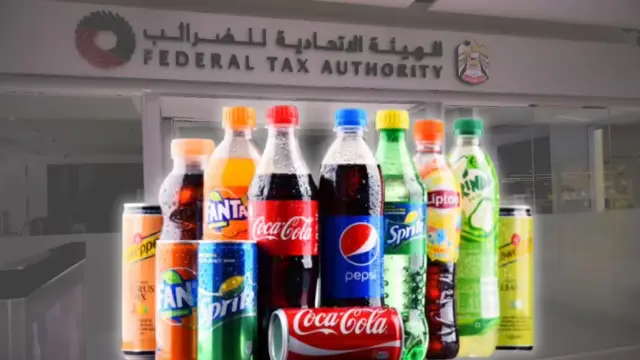October 7, 2025
The UAE government will implement a sugar-level tax on beverages starting January 2026, targeting soft drinks, juices, and energy drinks to encourage healthier consumption.

The United Arab Emirates has announced plans to implement a sugar-level-based tax on beverages beginning January 2026, a move aimed at promoting public health and reducing sugar consumption nationwide. The new regulations will affect soft drinks, fruit juices, energy drinks, and other sweetened beverages, with tax rates calculated according to their sugar content.
The Federal Tax Authority (FTA) confirmed that the initiative is part of the UAE’s broader strategy to combat rising rates of obesity, diabetes, and other non-communicable diseases. By taxing beverages with high sugar content, the government hopes to encourage consumers to make healthier choices and stimulate the beverage industry to reformulate products with lower sugar levels.
Beverages with sugar content above 5g per 100ml will be subject to taxation.
Tax rates vary by sugar concentration, with higher sugar content attracting higher rates.
Both imported and locally produced beverages are included.
The tax is expected to apply to single-serving bottles and multi-pack beverages.
The FTA stated that compliance requirements will include accurate labeling of sugar content, regular reporting to tax authorities, and strict adherence to the new pricing guidelines. Manufacturers and distributors will need to ensure that all products on shelves are correctly labeled to avoid penalties.
Economists predict that the tax could impact the beverage industry, potentially increasing retail prices for high-sugar drinks. Consumer advocacy groups, however, have largely welcomed the initiative, citing long-term health benefits and the potential to reduce sugar-related illnesses.
Some critics argue that such taxes may disproportionately affect low-income households who consume sugar-sweetened beverages more frequently. To mitigate this, authorities are considering public awareness campaigns to educate citizens about healthier alternatives and encourage behavioral changes without solely relying on taxation.
Health experts note that similar measures in other countries have successfully reduced sugar intake and promoted healthier consumption patterns. For instance, sugar taxes in Mexico, the UK, and Saudi Arabia have resulted in significant decreases in sugary drink sales and improved public health metrics over time.
The UAE’s new sugar tax is part of a series of economic and health reforms under the nation’s Vision 2031 plan, which seeks to enhance quality of life, reduce lifestyle-related diseases, and position the country as a leader in public health innovation.
Industry stakeholders have already begun preparing for the upcoming changes. Beverage manufacturers are exploring reformulation strategies to lower sugar content, introduce zero-sugar options, and comply with the new labeling and tax requirements. Retailers are expected to adjust pricing, promotional strategies, and inventory management to align with the new system.
Authorities emphasize that enforcement will be strict, with regular audits and fines for non-compliance. The FTA plans to release detailed guidelines and a timeline for compliance later this year, giving companies sufficient time to adjust operations.
Consumers are advised to review product labels carefully, as sugar levels will now directly impact cost. Health advocates anticipate that the initiative will drive a shift toward healthier alternatives such as water, unsweetened drinks, and beverages with natural sugar substitutes.
The sugar tax represents a significant step in the UAE’s public health agenda, balancing economic incentives with lifestyle changes, while reinforcing the government’s commitment to proactive measures in preventive healthcare.